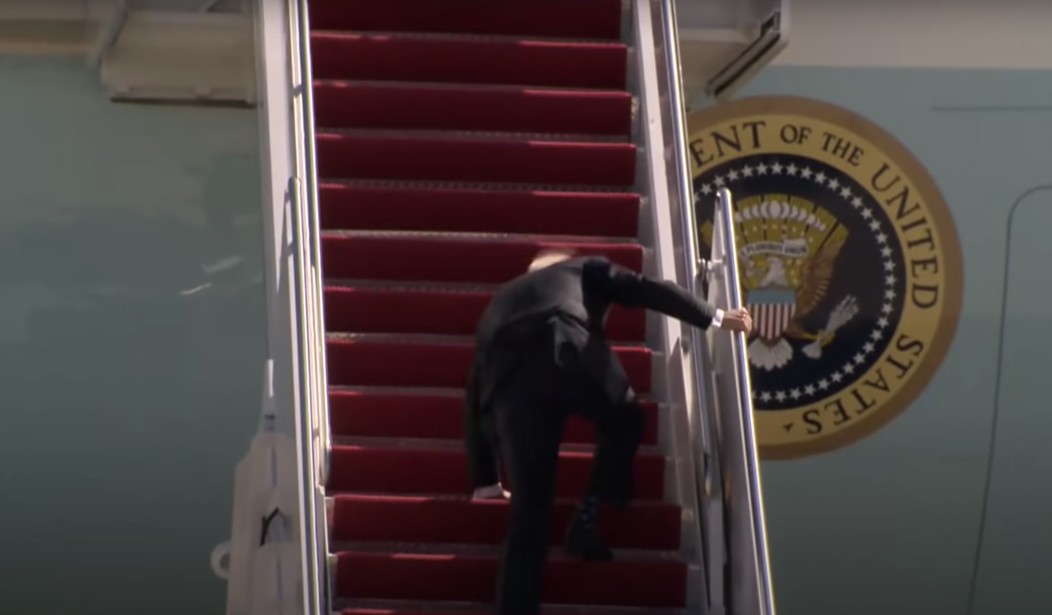I sure hope it isn’t just me but doesn’t it seem like since the most experienced foreign policy person ever to step into the White House as President, Joe Biden, our foreign relations and overall place in the world have just been a hot mess?
I thought so.
United States foreign policy is not something I spend a lot of time writing about, and I might spend a bit more time talking about it on my radio show. However, occasionally, there is a story that catches my attention that I feel the need to comment on because it’s big enough that I have some thoughts.
Joe Biden has provided a number of these moments in his first two years in office and quite frankly it is exhausting watching him.
So when a major story happened last week that was obscured by the banking morass that could have major implications for the United States for years to come, I took notice. One of the writers here at RedState first alerted me to the fact that traditional enemies in the form of the Iranians and the Saudis were chatting courtesy of China.
From my colleague Susie Moore in a piece titled “Saudi Arabia and Iran Kiss and Make up Compliments of China“…
Never mind the fact that after alienating the Saudis, Joe Biden went hat in hand to them last summer in a failed effort to nab an assist on oil supply.
Now, China has secured a deal that provides that Saudi Arabia and Iran will reopen embassies and missions within two months and a summit will be held shortly between their foreign ministers.
After that popped up on my radar I started looking for other stories on this and came across this from the Intercept.
The deal includes a mutual agreement by the parties to stay out of each other’s domestic affairs — a clause that will also require some major course corrections. Saudi Arabia, according to a report in the Wall Street Journal, has indicated it will modify the coverage of Iran International, a Saudi-funded Persian-language television station that has become a favored outlet for anti-regime Iranian political activists, as well as, allegedly, Israeli intelligence.
Despite these challenges, if the agreement between them holds, it would put Saudi Arabia outside of the firing line of a possible U.S.-Israeli campaign to destroy Iranian nuclear facilities. Following the U.S. decision to violate the Iran nuclear deal — or the Joint Comprehensive Plan of Action, known as the JCPOA — the likelihood of armed conflict is looking higher than ever.
Saudi Arabia’s agreement with Iran appears to be an attempt to stay out of the fray in case a war comes to pass. Yet it also signals the U.S.’s own relative isolation in the region, outside of its lockstep relationship with Israel, as it presses forward with a campaign to isolate Iran that even its own partners have begun to balk at.
Since the beginning of the Republic, the United States has tried to influence countries for its own benefit, whether or not we mutually viewed the world as they do. That, of course, is nothing new amid the long history of the world. The United States, still being one of the younger countries in western civilization, has gone at this with the creativity and the zeal that Americans are often quite famous for, and our relationship with Saudi Arabia is one of those classic examples.
We really have never had much use for the Kingdom of Saudi Arabia and its style of governance except when it came to needing their oil and then later as a buffer to the radical state of Iran (particularly after the Shah of Iran was overthrown by Ayatollah Khomeini in 1979). That put an immediate crimp in our Middle East policy objectives and meant that we needed to become a bit closer with the Saudis after that event.
Even though the majority of the 9/11 hijackers came from Saudi Arabia, it did little for U.S. foreign policymakers to encourage distancing our country from the kingdom. We’ve continued on business as usual because of the overall larger policy goals of keeping Iran from exporting any more of their unique brand of “diplomacy.”
Say what you will about Trump Administration’s foreign policy, the Biden Administration has completely shut the door on the Saudis, and the Chinese have seen the opportunity they are now taking advantage of.
This is not good in any way shape or form.
The Chinese, sensing confusion in Washington, are now positioning themselves as the dominant global leader in the foreign policy realm. President Xi headed to Russia this week to talk with Putin and talking with President Zelinsky in Ukraine, trying to broker a peace deal, and now doing the same thing with mortal enemies and Iran in Saudi Arabia.
The Chinese are making it look like the American influence around the globe is in serious decline and quite frankly it’s hard to argue otherwise.
The current President of the United States was not the sharpest tool in the shed when he was a Senator in the 80s and now the Chief Diplomat is seriously being out-maneuvered on the world stage. While the Chinese have serious issues back at home and sanctions to deal with worldwide over the covid debacle they are utilizing their time to buy some goodwill around the world. If that leaves the United States on the sideline does anyone believe the Chinese will have any interest in seeing this country flourish in any way?
I can only hope that a serious discussion of the future of the United States and our role in the world will soon occur during the GOP debates for the nomination to be President this summer. However, I’m sure I will be sorely disappointed as the discussion will be reduced to people screaming GLOBALIST and accusing everyone but their candidate of being a Soros puppet.
I do hope I’m wrong.
HEY, you have thoughts on any of this, you can always let me know by checking out my bio RIGHT HERE and let me know via email to social media platforms. If you get really creative, I may mention you on my radio show or Facebook live events that I do LIVE three times a week.















